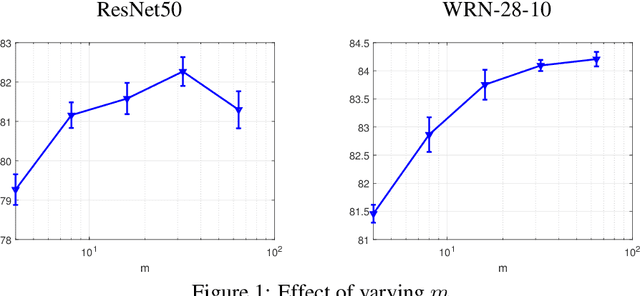Improved Deep Neural Network Generalization Using m-Sharpness-Aware Minimization
Paper and Code
Dec 07, 2022



Modern deep learning models are over-parameterized, where the optimization setup strongly affects the generalization performance. A key element of reliable optimization for these systems is the modification of the loss function. Sharpness-Aware Minimization (SAM) modifies the underlying loss function to guide descent methods towards flatter minima, which arguably have better generalization abilities. In this paper, we focus on a variant of SAM known as mSAM, which, during training, averages the updates generated by adversarial perturbations across several disjoint shards of a mini-batch. Recent work suggests that mSAM can outperform SAM in terms of test accuracy. However, a comprehensive empirical study of mSAM is missing from the literature -- previous results have mostly been limited to specific architectures and datasets. To that end, this paper presents a thorough empirical evaluation of mSAM on various tasks and datasets. We provide a flexible implementation of mSAM and compare the generalization performance of mSAM to the performance of SAM and vanilla training on different image classification and natural language processing tasks. We also conduct careful experiments to understand the computational cost of training with mSAM, its sensitivity to hyperparameters and its correlation with the flatness of the loss landscape. Our analysis reveals that mSAM yields superior generalization performance and flatter minima, compared to SAM, across a wide range of tasks without significantly increasing computational costs.
 Add to Chrome
Add to Chrome Add to Firefox
Add to Firefox Add to Edge
Add to Edge